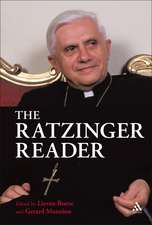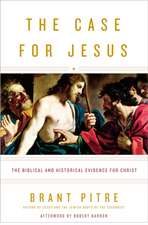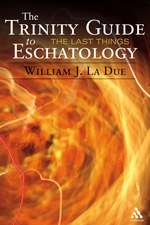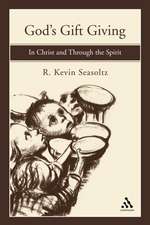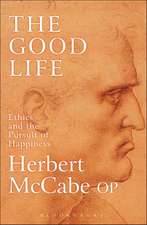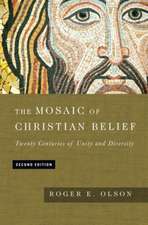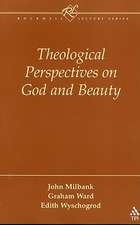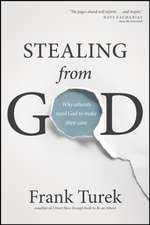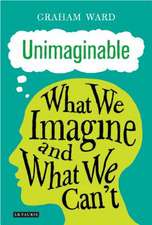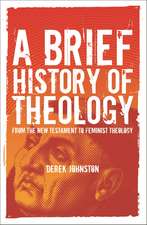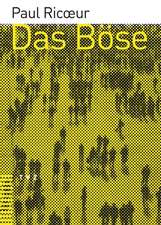Evil: A challenge to philosophy and theology
Autor Paul Ricoeuren Limba Engleză Paperback – 20 apr 2007
Preț: 76.81 lei
Preț vechi: 129.06 lei
-40% Nou
Puncte Express: 115
Preț estimativ în valută:
14.70€ • 15.29$ • 12.14£
14.70€ • 15.29$ • 12.14£
Carte tipărită la comandă
Livrare economică 14-28 aprilie
Preluare comenzi: 021 569.72.76
Specificații
ISBN-13: 9780826494764
ISBN-10: 0826494765
Pagini: 80
Dimensiuni: 129 x 198 x 6 mm
Greutate: 0.1 kg
Editura: Bloomsbury Publishing
Colecția Continuum
Locul publicării:London, United Kingdom
ISBN-10: 0826494765
Pagini: 80
Dimensiuni: 129 x 198 x 6 mm
Greutate: 0.1 kg
Editura: Bloomsbury Publishing
Colecția Continuum
Locul publicării:London, United Kingdom
Caracteristici
Paul Ricoeur's writings are always popular publications
Cuprins
Extended Introduction by Graham WardPreface by Pierre Gisel1. The experience of evil2. The levels of discussion and discourse on evil3. Thinking, acting, feeling
Recenzii
Offers rich philosophical resources for theological reflection.
One of the most important achievements of Catani's work is to demonstrate that literature, as a discourse of knowledge that can intersect with science, theology, politics, and history, deserves to play a decisive role in deepening and complexifying the terms of public debate.
Mention in Church Times, January 2009
Evil: A History in Modern French Literature and Thought offers a rich study of French thought on evil in its development over almost two centuries. Catani succeeds in the ambitious task of placing in dialogue with one another upwards of forty key thinkers in order to establish a series of significant shifts in understanding evil that will greatly benefit scholars of intellectual history.
With engaging prose, Damian Catani pays close attention to linguistic choices- his own and those of the authors he studies, as they attempt to find and forge a language capable of representing evil. Other strengths include Catani's mastery of a broad corpus of literary and theoretical works, as well as Evil's compelling overarching narrative, which propels the reader forward and regularly underscores connections among chapters and disparate authors and periods. This valuable contribution to the field will appeal to scholars of intellectual history and modern French literature, in addition to readers interested in the public debate surrounding recent (counter)terrorist actions and rhetoric.
One of the most important achievements of Catani's work is to demonstrate that literature, as a discourse of knowledge that can intersect with science, theology, politics, and history, deserves to play a decisive role in deepening and complexifying the terms of public debate.
Mention in Church Times, January 2009
Evil: A History in Modern French Literature and Thought offers a rich study of French thought on evil in its development over almost two centuries. Catani succeeds in the ambitious task of placing in dialogue with one another upwards of forty key thinkers in order to establish a series of significant shifts in understanding evil that will greatly benefit scholars of intellectual history.
With engaging prose, Damian Catani pays close attention to linguistic choices- his own and those of the authors he studies, as they attempt to find and forge a language capable of representing evil. Other strengths include Catani's mastery of a broad corpus of literary and theoretical works, as well as Evil's compelling overarching narrative, which propels the reader forward and regularly underscores connections among chapters and disparate authors and periods. This valuable contribution to the field will appeal to scholars of intellectual history and modern French literature, in addition to readers interested in the public debate surrounding recent (counter)terrorist actions and rhetoric.




